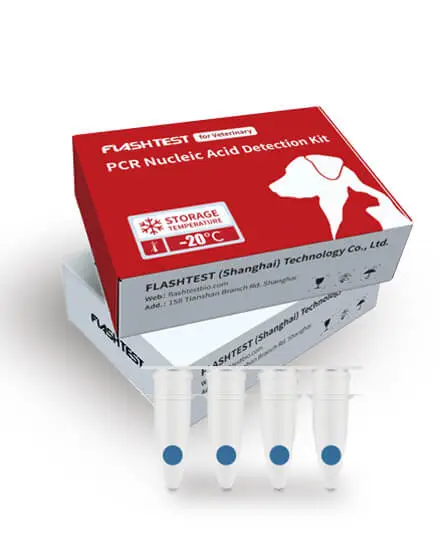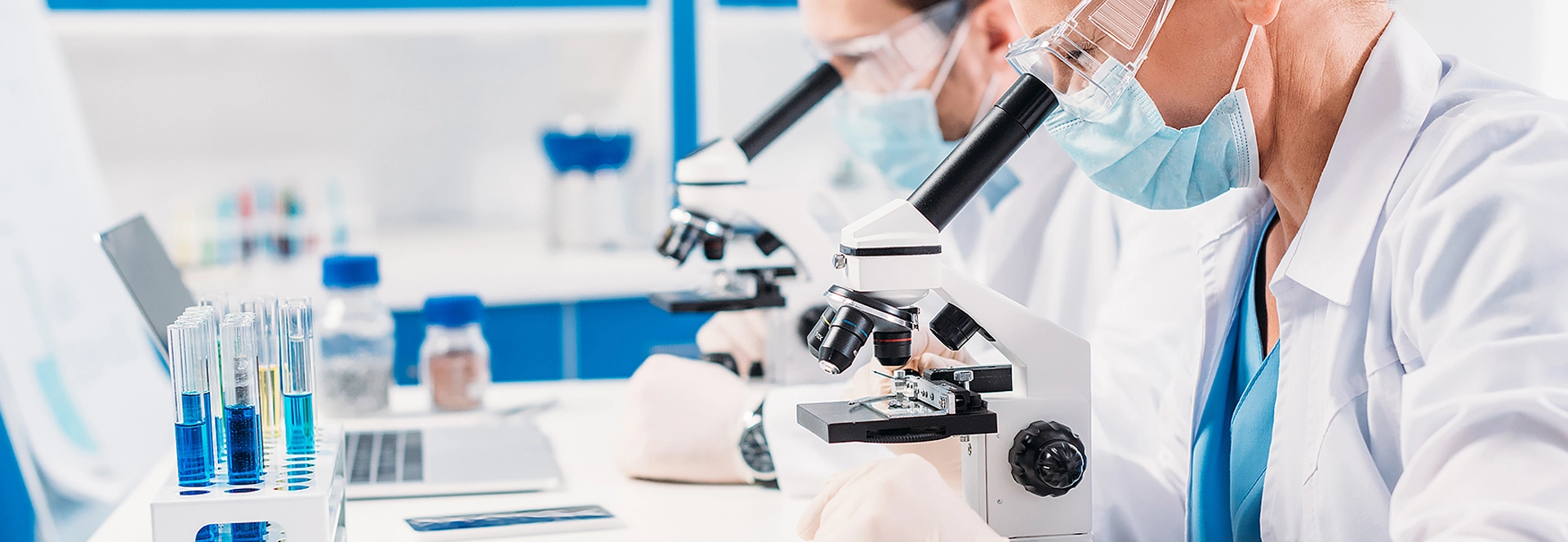Polymerase Chain Reaction (PCR) testing has revolutionized diagnostic capabilities in veterinary medicine. This article explores the intricate process behind canine PCR tests, highlighting their importance, applications, and benefits in animal healthcare.
What is PCR Testing?
PCR testing is a molecular technique used to amplify and detect DNA or RNA sequences, allowing veterinarians to identify pathogens, genetic markers, or mutations with high specificity.

Key Components of PCR Testing
1. DNA/RNA Extraction
Extraction of genetic material from animal samples.
2. Primer Design
Selection of specific primers that bind to target DNA/RNA sequences.
3. Amplification
Replication of DNA/RNA segments using PCR cycles.
Steps Involved in a PCR Test
1. Sample Collection
Collection of biological samples (blood, tissue, or swabs) from the animal.
2. DNA/RNA Extraction
Purification of genetic material from the sample using specialized kits or protocols.
3. PCR Setup
Preparation of PCR reaction mix containing DNA/RNA, primers, nucleotides, and polymerase enzyme.
4. Denaturation
Heating the PCR mix to separate DNA strands.
5. Annealing
Cooling to allow primers to bind to complementary DNA strands.
6. Extension
Polymerase enzyme extends new DNA strands by adding nucleotides.
7. Amplification Cycles
Repeated cycles of denaturation, annealing, and extension to exponentially replicate target DNA/RNA.
Applications of PCR Tests in Veterinary Practice
1. Infectious Disease Detection
Rapid identification of viral or bacterial infections like parvovirus in dogs.
2. Genetic Testing
Screening for genetic disorders such as inherited diseases in specific breeds.
3. Forensic Identification
DNA profiling for forensic investigations or animal parentage verification.
Advantages of PCR Testing
High Sensitivity and Specificity: Detects low levels of pathogens accurately.
Speed and Efficiency: Provides quick results crucial for timely treatment.
Versatility: Adaptable to various sample types and pathogens.
Pet PCR test is a cornerstone in veterinary diagnostics, offering precise and rapid detection of diseases and genetic traits in animals. Its continual advancements contribute significantly to improving animal health outcomes worldwide.
FAQs
1. How long does it take to get PCR test results for animals?
PCR test results can typically be obtained within a few hours to a day, depending on the laboratory and the specific test.
2. Are PCR tests safe for animals?
Yes, PCR tests are safe for animals as they involve minimal handling and non-invasive sample collection methods.
3. Can PCR tests differentiate between different strains of viruses?
Yes, PCR tests can differentiate between different strains of viruses based on specific genetic markers targeted by the primers.
4. Are PCR dog tests expensive for veterinary clinics?
PCR dog tests can vary in cost depending on the complexity of the test and the laboratory performing it, but they are generally considered affordable for diagnostic purposes.
5. What happens if a canine PCR test shows a positive result?
A positive PCR test indicates the presence of the targeted pathogen or genetic marker in the animal, prompting further veterinary evaluation and treatment.
Related Animal Lab Test Products
-
-
- Dry Chemistry Analyzer
- Compact Fully Automated Immunofluorescence Analyzer
- Economical Immunofluorescence Analyzer
- Handheld Immunofluorescence Quantitative Analyzer
- High-Speed Fully Automated Immunofluorescence Analyzer
- Semi-Automated Immunofluorescence Analyzer
- Immunofluorescence Analyzer + Incubator
- Handheld Immunofluorescence Quantitative Analyzer


![[3211]Pseudorabies gB Virus (PRV-gB)/Pseudorabies gE Virus (PRV-gE) [3211]Pseudorabies gB Virus (PRV-gB)/Pseudorabies gE Virus (PRV-gE)](/uploads/image/20250113/10/Pseudorabies-gB-Virus-PRV-gBPseudorabies-gE-Virus-PRV-gE-Nucleic-Acid-Test-Kit-Lyophilized.webp)
![[2416]C-Reactive Protein (CRP) [2416]C-Reactive Protein (CRP)](/uploads/image/20250112/13/C-Reactive-Protein-CRP-Test-Kit.webp)
![[3004]Feline Herpesvirus (FHV) [3004]Feline Herpesvirus (FHV)](/uploads/image/20250111/13/Feline-Herpesvirus-FHV-Nucleic-Acid-Test-Kit-Lyophilized.webp)